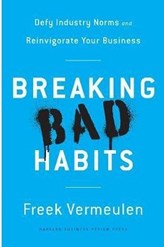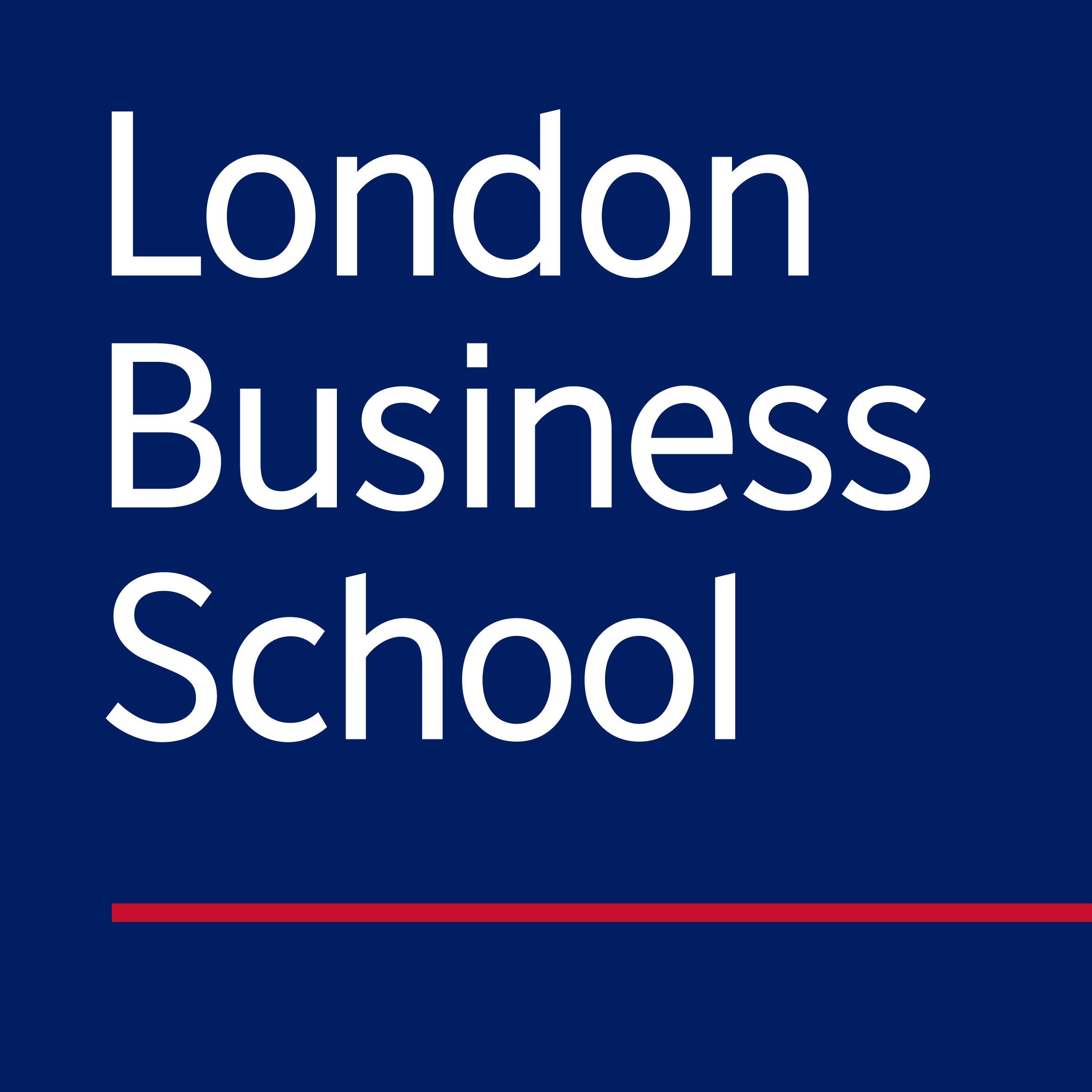- Innovation
When Best Practices Are Bad Habits
Prof Freek Vermeulen reveals how bad habits are holding businesses back
Much has been written about innovation in organizations, but less has been said about the corresponding need to clear out old ways of doing things in order to create the open fertile ground where new ideas can take root. Old ways of doing things are typically based on industry norms or ‘Best Practices’.
To embrace the new thinking and innovation that will drive their future success, organizations need to ditch many best practices that they live by today – but have passed their sell-by date. This is the premise behind Breaking Bad Habits, the new book from Freek Vermeulen, strategy professor at London Business School. Sub-titled Defy Industry Norms and Reinvigorate Your Business, the book shows how to identify and eliminate bad practices and, illustrated with numerous cases, demonstrates how by creating fertile ground for innovation this can lead to profitable renewal.

“That’s the way we do things around here,” is the give-away phrase that, according to Vermeulen, signals the presence of a bad habit that needs to stop. These are often enduring structures, systems, processes and ways of working that once helped improve organizational performance but in a 2018 context are no longer relevant and can now be hindering innovation. These inefficient practices which may have originated from good intentions can spread and become embodied in an organization for decades, often established by people long since gone, but unchallenged because, like bad habits, managers fail to recognise their negative effects.
Bad best practices come in many forms, both informal and formal. Examples include: medical staff chasing success rates, professional firms demanding staff work long hours, the way companies handle performance reviews, budgets and bonus systems, or the over reliance on management systems such as ISO 9000 or Six Sigma which by their inward focus on current processes can block innovation and change.
Having described how bad habits form and spread, Vermeulen goes on to show how to eliminate them, using examples from IVF clinics, hotels, newspapers and London’s Saddlers Wells theatre. He offers a ‘ten commandments’ for identifying and eliminating bad habits, the first of which is to "Cut out benchmarking" – because this encourages a herd mentality “a real dud for innovation” and a way for bad practice to spread and persist.
The second half of the book is devoted to reinvigorating the organization. This is about innovation – but significantly also points out that having got rid of bad practices it is essential not to breed or adopt new ones. Advice for fostering innovation and organizational renewal includes: embracing change for change’s sake; deliberately seeking challenging products, markets or customers as difficulty is a great source of learning; balancing exploitation of the current with exploration of the new; creating an innovation climate that is varied but selective.
Vermeulen says he studies organizations because they are the fundamental building blocks of human life. For this reason and because organizations can take on lives of their own the ideas he put forward in this book are important. For organizations to remain competitive, change and innovation are crucial. Sclerotic organizations where entrenched bad best practices inhibit change are destined to fail.
Freek Vermeulen is Associate Professor of Strategy and Entrepreneurship at London Business School he writes, consults and speaks across the world on topics such as strategies for growth, strategic innovation and making strategy happen. He is the winner of several teaching awards, including the first ever winner of London Business School’s Excellence in Teaching Award, and has received several prizes for his research, including the prestigious Academy of Management Journal Best Paper Award.
Breaking Bad Habits: Defy Industry Norms and Reinvigorate Your Business, by Freek Vermeulen, is published by Harvard Business Review Press, 2017, ISBN: 978-1-63369-382-1
Where extraordinary minds and diverse perspectives connect, in a truly inspiring environment, to have a profound impact on the way the world does business and the way business impacts the world. Our academic strength and global outlook drives original and provocative business thinking. We challenge conventional wisdom, transform careers and empower our people to change the way the world does business.
ARTICLES YOU MIGHT LIKE
VIEWPOINT
Cognitive neuroscientist, Lynda Shaw, explains how to understand and support intrapreneurs
DEVELOPING LEADERS QUARTERLY MAGAZINE AND WEEKLY BRIEFING EMAILS


































